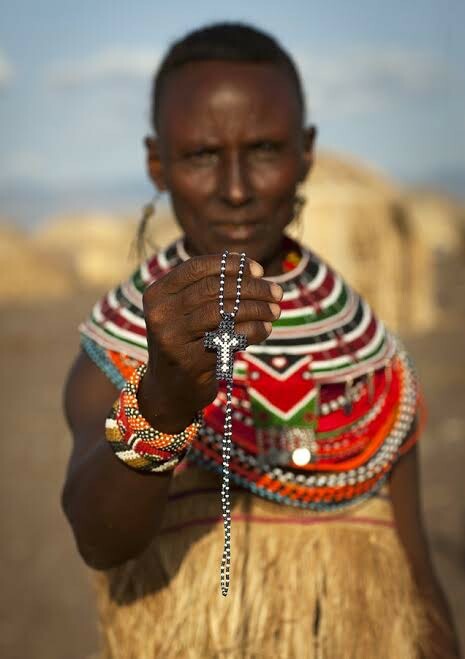The El Molo, also known as Elmolo, are an ethnic group mainly inhabiting the northern Eastern Province of Kenya. They are the smallest ethnic group in Kenya, numbering about 300 people. They originally settled in the north of Lake Turkana but were forced by the other tribes to move south to the small islands. There are now gathered into two villages, respectively 150 and 70 inhabitants. They are believed to have originally migrated down into the Great Lakes area around 1000 BC from Ethiopia in the more northerly Horn region. Most group members are today admixed with adjacent Nilotic populations, with only a handful of unmixed El Molo believed to exist.

Owing to the arid environment in which they entered, they are held to have then abandoned agricultural activities in favor of lakeside fishing. The Samburu name for El Molo means "the people who eat fish". As a matter of fact, the El-Molo's life is now based on fishing, and that is why they suffer greatly of the increasing pollution of the lake. Their main diet is based on fish and occasionally crocodile, turtle and other wildlife. Killing hippos gives a great social status to the warrior. They hunted from rafts with hand-made harpoons from acacia roots, their fishing nets are made from doum palm fiber.

The El Molo still live in small dorm-shapes huts, built on the shore of Lake Turkana, even if they are slowly being replaced by permanent concrete homes. Like the Samburu, the El Molo wear necklaces and bracelets made of colored beads. Nowadays, only the elder dress in a traditional way. Many El Molo practice a traditional religion centered on the worship of Waaq/Wakh. In the related Oromo culture, Waaq denotes the single God of the early pre-Abrahamic, monotheistic faith believed to have been adhered to by Cushitic groups. Some El Molo have also adopted Christianity. The El Molo bury their dead under a small cairn of stones on the lake shore, the whole village then moving away from the spot of burial to avoid offending the dead.
